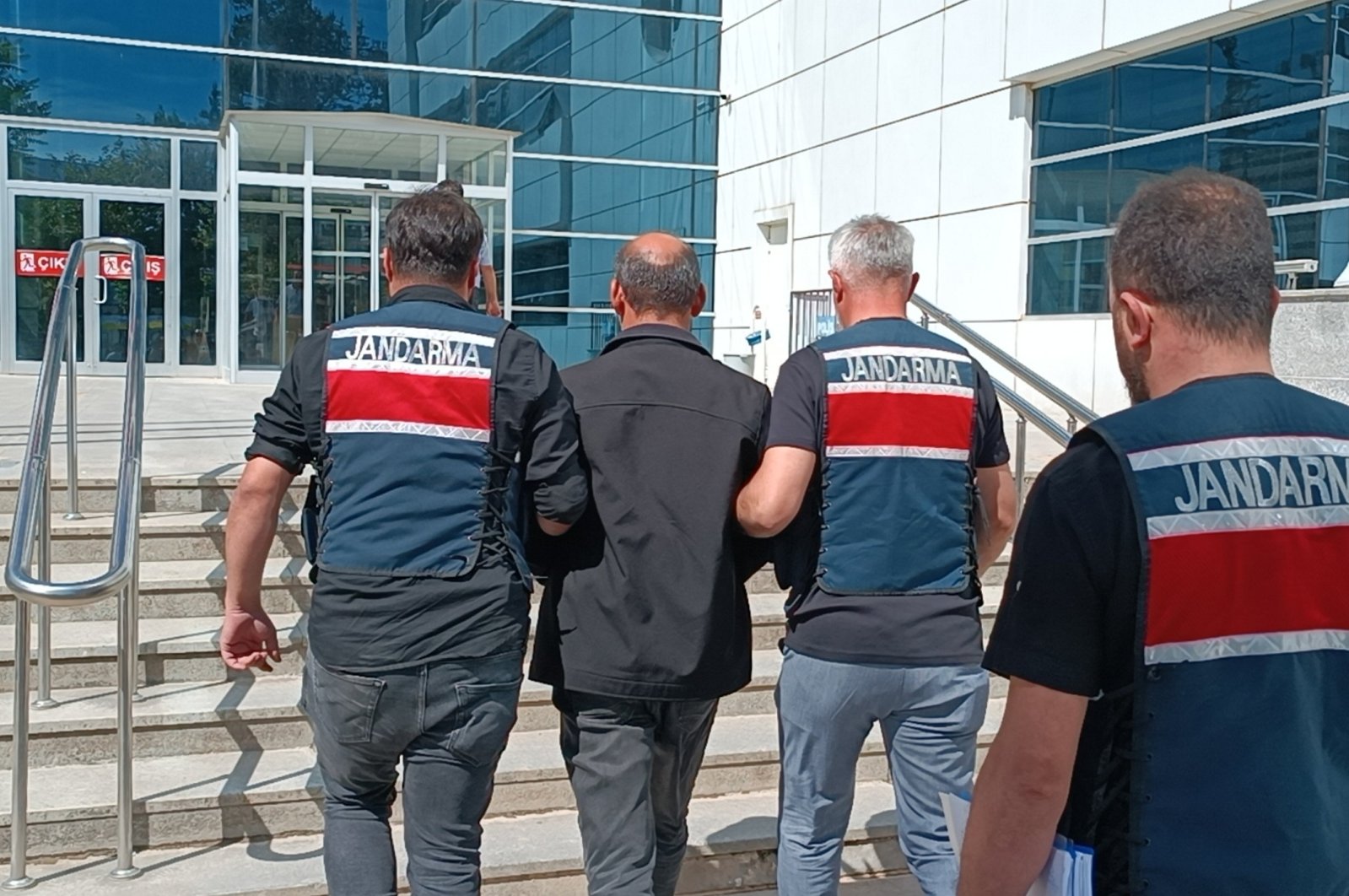
Security forces destroyed some 71 hideouts used by PKK terrorists in southeastern Türkiye, Interior Minister Ali Yerlikaya announced Friday.
Operation "Gürz-17" targeted caves and shelters PKK terrorists use for its attacks across the countryside of some 10 provinces, including Şırnak, Siirt, Van, Hatay and Hakkari, Yerlikaya said on X.
The air-backed operation was conducted jointly by 234 teams of 3,172 security personnel from the gendarmerie special forces, intelligence officers and local police.
With no shelter in urban locations, the PKK takes advantage of mountainous territories in Türkiye’s southeast, where its members spend winter in remote caves.
Security forces seized 1,303 anti-aircraft ammunitions, 360 grenades, 257 kilograms (566.59 pounds) of explosive materials prepared for terrorist attacks, 141 landmines, 80 RPG-7 ammunitions, 32 improvised explosives, 16 ammunitions for cannons, mortars and grenade launchers, as well as 7,624 ammunitions of various kinds and sizes, two RPG-7 rocket launchers, 112 anti-missile engines, a machine gun, nine AK-47 rifles, a Zagros sniper rifle and 365 detonators.
Additionally, in several Şırnak and Hakkari districts, which border Iran and Iraq, where the PKK operates several strongholds, security forces seized 22 explosive launchers, three solar panels, four camera trap batteries, 540 meters (1,771.65 feet) of wick to be used in handmade explosives, 780 meters of electric cable, 110 kilograms of ammonium nitrate, 282 gas tubes, four binoculars and dozens of organizational materials.
Türkiye continues to mount operations against terrorists in both cities and rural regions around the clock, Yerlikaya said.
Turkish security forces regularly conduct counterterrorism operations in the eastern and southeastern provinces of Türkiye, where the PKK has attempted to establish a stronghold in its four-decade campaign of terror.
The PKK took up arms against the Turkish state in 1984 to achieve a so-called Kurdish self-rule in southeastern regions and is designated a terrorist organization by Ankara, as well as the United States and the European Union.
The conflict with the PKK was long fought mainly in rural areas of southeastern Türkiye but is now more focused on the mountains of northern Iraq's semi-autonomous Kurdistan Regional Government (KRG)-administered region, where the PKK militants have their headquarters in Qandil, which sits roughly 40 kilometers (25 miles) southeast of the Turkish border in Irbil.
Türkiye has, over the past 25 years, operated several dozen military bases in northern Iraq in its war against the PKK and has been conducting airstrikes as part of "Claw" operations since 2022 to demolish terrorist lairs and prevent the formation of a terror corridor along its borders.
Defense Minister Yaşar Güler said recently that the ongoing Operation Claw-Lock, launched in April 2022, would be completed before the winter to sever the ties between Syria and Qandil.
The aim is to wipe out the PKK from the immediate Turkish borders and create an approximately 40-kilometer-deep security corridor along the Iraqi and Syrian borders.
Similarly, on Friday, the Defense Ministry said a total of 22 PKK/YPG terrorists were eliminated in airstrikes across northern Iraq and Syria.
The PKK is not recognized as a terrorist group in Iraq but is banned from launching attacks on Türkiye from Iraqi soil.
Ankara and Baghdad have been at loggerheads over Ankara's cross-border military operations against the PKK in northern Iraq.
Iraq has said the operations are a violation of its sovereignty, but Ankara says they are needed to protect itself.
Baghdad in March outlawed the PKK and agreed in August to military cooperation that will see joint training and command centers against the terrorists, but Ankara wants Iraq to recognize it as a terrorist organization fully.
The PKK relies on support from a party operating in the KRG-controlled region in Iraq as Baghdad and the KRG has tightened measures against the group, including a ban by Baghdad. In Syria, it boasts support from the U.S. under the pretext of fighting against Daesh.
